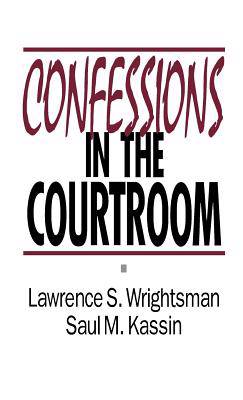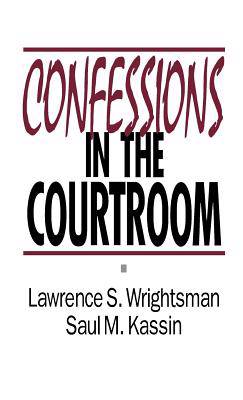
Bedankt voor het vertrouwen het afgelopen jaar! Om jou te bedanken bieden we GRATIS verzending (in België) aan op alles gedurende de hele maand januari.
- Afhalen na 1 uur in een winkel met voorraad
- In januari gratis thuislevering in België
- Ruim aanbod met 7 miljoen producten
Bedankt voor het vertrouwen het afgelopen jaar! Om jou te bedanken bieden we GRATIS verzending (in België) aan op alles gedurende de hele maand januari.
- Afhalen na 1 uur in een winkel met voorraad
- In januari gratis thuislevering in België
- Ruim aanbod met 7 miljoen producten
Zoeken
€ 279,45
+ 558 punten
Uitvoering
Omschrijving
When the prosecution introduces confession testimony during a criminal trial, the effect is usually overwhelming. In fact, jurors′ verdicts are affected more by a confession than by eyewitness testimony. While eyewitness studies are massive in numbers, the topic of confession evidence has been largely ignored by psychologists and other social scientists. Confessions in the Courtroom seeks to rectify this discrepancy. This timely book examines how the legal system has evolved in its treatment of confessions over the last half century and discusses, at length, the U.S. Supreme Court′s decision regarding Arizona v. Fulminante which caused a reassessment of the acceptability of confessions generated under duress. The authors examine the causes of confessions and the interrogation procedure used by the police. They also evaluate the process for determining the admissability of confession testimony and provide excellent research on jurors′ reactions to voluntary and coerced confessions. Social scientists, attorneys, members of the criminal justice system, and students will find Confessions in the Courtroom to be an objective and readable treatment on this important topic. "In this short volume, the authors seek "to describe and evaluate what we know about confessions given to police and their impact at the subsequent trial." It is a comprehensive review of the social psychological literature and legal decisions surrounding confessions. One of the primary strengths of the manuscript is the interplay between social science and law fostered by the authors′ clear understanding of the boundaries between these disciplines and appreciation of the substantive areas they share. . . . [The authors] have produced a comprehensive and imminently readable legal and psychological treatise on confessions, valuable for established scholars and for students." --Journal of Contemporary Criminal Justice
Specificaties
Betrokkenen
- Auteur(s):
- Uitgeverij:
Inhoud
- Aantal bladzijden:
- 176
- Taal:
- Engels
Eigenschappen
- Productcode (EAN):
- 9780803945548
- Verschijningsdatum:
- 1/05/1993
- Uitvoering:
- Hardcover
- Formaat:
- Genaaid
- Afmetingen:
- 140 mm x 216 mm
- Gewicht:
- 376 g

Alleen bij Standaard Boekhandel
+ 558 punten op je klantenkaart van Standaard Boekhandel
Beoordelingen
We publiceren alleen reviews die voldoen aan de voorwaarden voor reviews. Bekijk onze voorwaarden voor reviews.









